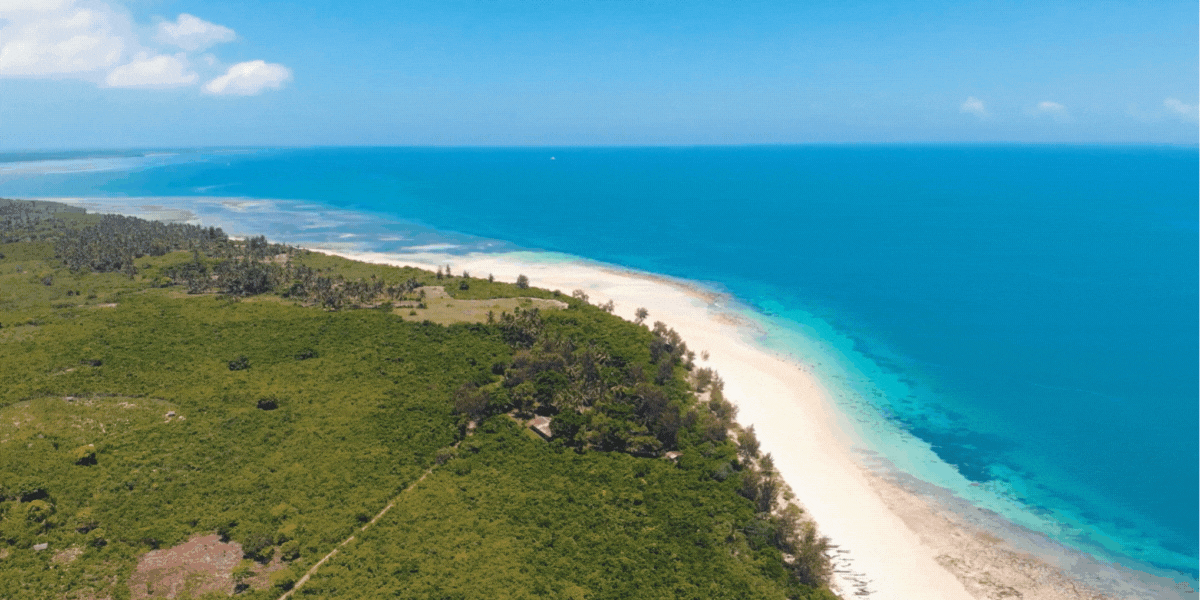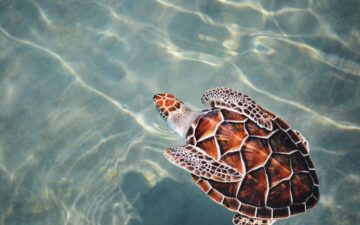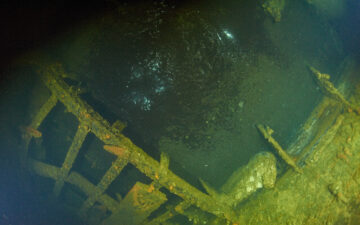The Ocean Foundation is pleased to announce that it will grant a total of $118,266 to eight different regenerative tourism initiatives on island nations around the world through the Regenerative Tourism Catalyst Grant Program. These awards are supported through the Foundation’s partnership with the U.S. National Oceanic and Atmospheric Administration (NOAA) Climate Program Office Adaptation Sciences program, National Marine Protected Areas Center, and the Local2030 Islands Network, with support from the U.S. Department of State (DOS). These grants are intended to support island communities in implementing regenerative tourism projects and approaches as part of their broader efforts to build climate resilience and advance their sustainable development goals, and enhance island leadership through participation in the Local2030 Islands Network. Grant recipients will share their methods and results through the Network’s global, peer-to-peer Community of Practice on Sustainable and Regenerative Tourism.
Regenerative tourism is the next step in sustainable tourism, especially considering a rapidly changing climate. While sustainable tourism focuses on minimizing the negative impacts of tourism for the benefit of future generations, regenerative tourism seeks to leave the destination better than it was while improving the quality of life of the local community. It sees communities as living systems that are distinct, constantly interacting, evolving, and essential for creating balance and building resilience for improved well-being. At its core, the focus of regenerative tourism is on the needs and aspirations of the host communities.
As Susan Ruffo, NOAA’s Deputy Assistant Secretary for International Affairs noted:
“These new grants are a fantastic way to foster understanding of what regenerative tourism is and develop innovative projects to create and amplify pathways toward more resilient communities and ecosystems. This work also reflects NOAA’s commitment to collaboration with islands and the Local2030 Island Network, which is integral to uplifting island voices in the effort to build climate resilience and reach the UN Sustainable Development Goals.”
Small islands are among the most vulnerable to climate impacts, and face compound and cascading challenges related to changes in sea levels and coastal flooding, shifting temperature and rainfall patterns, ocean acidification, and extreme events such as storms, droughts, and marine heat waves. As a result, numerous island communities, governments, and international partners are seeking ways to understand, predict, mitigate, and adapt to climate change in the context of enhanced resilience and sustainable development. As populations with the most exposure and vulnerability often have the lowest capacity to respond to these challenges, there is a clear need for increased capacity in these regions to support these efforts. These grants are intended to support island communities in implementing regenerative tourism projects and approaches to make their communities more resilient to climate impacts.
The following projects are awarded funding:
- Title: Empowering Local Communities to Set-up Regenerative Tourism Activities that Enhance Locally-Managed Marine Protected Areas (MPAs) as a Nature-based Climate Solution Along the Coral Coast of Fiji
Organization/Applicant: Naidiri Marine Biodiversity Park
Country: Fiji
Funding received: $15,000
Summary: This project aims to set-up regenerative tourism activities that empower the community in Naidiri to enhance a local MPA and expand Naidiri’s unique tabu (MPA) concept to other villages along the coral coast as a nature-based solution for climate change, raise awareness about marine conservation in the region, and improve the socio-economic conditions in Naidiri. This project will create a monitoring program for their coral reef, including training locals in reef checks, creating a business strategy and marketing campaign for regenerative tourism.
- Title: Integrating the Recreational Dive Sector into National Marine Planning in Barbados
Organization/Applicant: PADI AWARE Foundation
Country: Barbados
Funding received: $13,330
Summary: This project aims to establish a multi-year strategic work plan to integrate the recreational diving sector into national marine spatial planning and conservation projects and initiatives in Barbados.
- Title: BAI Project Biodiversity, Accessibility, and Innovation for Preserving Cultural Heritage in Palau
Organization/Applicant: Ivory Vogt
Country: Palau
Funding received: $15,000
Summary: This project seeks to implement an intersectional approach to the existential threat of biodiversity and culture loss in Palau by using community-led technology, citizen science, multimedia storytelling, as well as Indigenous knowledge to preserve Palau’s endangered species, cultural heritage, and Indigenous science, as well as safeguard physical cultural assets against the threats of degradation and climate change.
- Title: Sustainable Craft and Hospitality Integration for Cultural Heritage and Community Empowerment in Grenada
Organization/Applicant: Council on Sustainable Fashion & Design of Grenada, West Indies School of Hospitality
Country: Grenada
Funding received: $15,000
Summary: This project seeks to revolutionize Grenada’s tourism sector by integrating locally crafted products and sustainable hospitality practices. This program responds to the critical need for economic diversification, cultural preservation, and environmental sustainability within the Caribbean context. By empowering local artisans and enhancing hospitality services with regenerative principles, the project aims to establish a resilient circular economy that retains economic value within Grenada.
- Title: Using Technology to Increase Tourism Industry Seafood Supply Chain Traceability in the Maldives
Organization/Applicant: Maldives Resilient Reefs
Country: Maldives
Funding received: $14,936
Summary: This project will contribute towards the development of sustainable and equitable seafood sourcing practices that utilize advancements in vessel monitoring technology to increase supply chain transparency and empower local communities. This program ensures that the local seafood sourced by tourist resorts has been caught in a sustainable and equitable way by working directly with local fishing communities.
- Title: From Waste to Table – An Eco-Tourism Farming Initiative
Organization/Applicant: Raffles Seychelles
Country: Seychelles
Funding received: $15,000
Summary: This project will establish a vertical edible farm on the premises of the Raffles Seychelles, a Seychelles-based hotel. This initiative aims to promote sustainable agriculture practices, reduce food waste, and foster community resilience through ecotourism engagement. By integrating waste management, organic farming, and ecotourism principles, the project demonstrates the hotel’s commitment to environmental stewardship and community empowerment and cultural preservation.
- Title: Farm at CTI Regenerative Food Forest Project
Organization/Applicant: One Eleuthera Foundation
Country: The Bahamas
Funding received: $15,000
Summary: This project will tell the rich and varied history of agriculture in The Bahamas and demonstrate ancient growing techniques used in the Bahamas that can still be used today. This project will enhance existing orchard health and promote a more sustainable farming model that other farmers can utilize throughout the island.
- Title: Using Regenerative Tourism and Culture/Heritage to Build a Sense of Guardianship Among the Local Community of Old Grant Port
Organization/Applicant: Environmental Protection & Conservation Organisation (EPCO)
Country: Mauritius
Funding received: $15,000
Summary: This project aims to build the capacity of the local community, mostly women and youth, on regenerative tourism concepts and principles in the village of Vieux Grand Port. The project will recruit a group of 30 unemployed community members to be sensitized and trained on the concept of regenerative tourism and culture/heritage during 16 sessions.
About The Ocean Foundation
As the only community foundation for the ocean, The Ocean Foundation (TOF)’s 501(c)(3) mission is to support, strengthen, and promote those organizations dedicated to reversing the trend of destruction of ocean environments around the world. It focuses its collective expertise on emerging threats in order to generate cutting-edge solutions and better strategies for implementation. The Ocean Foundation executes core programmatic initiatives to combat ocean acidification, advance blue resilience, address global marine plastic pollution, and develop ocean literacy for marine education leaders. It also fiscally hosts more than 55 projects across 25 countries.
Media Contact Information
Ben Scheelk, The Ocean Foundation






